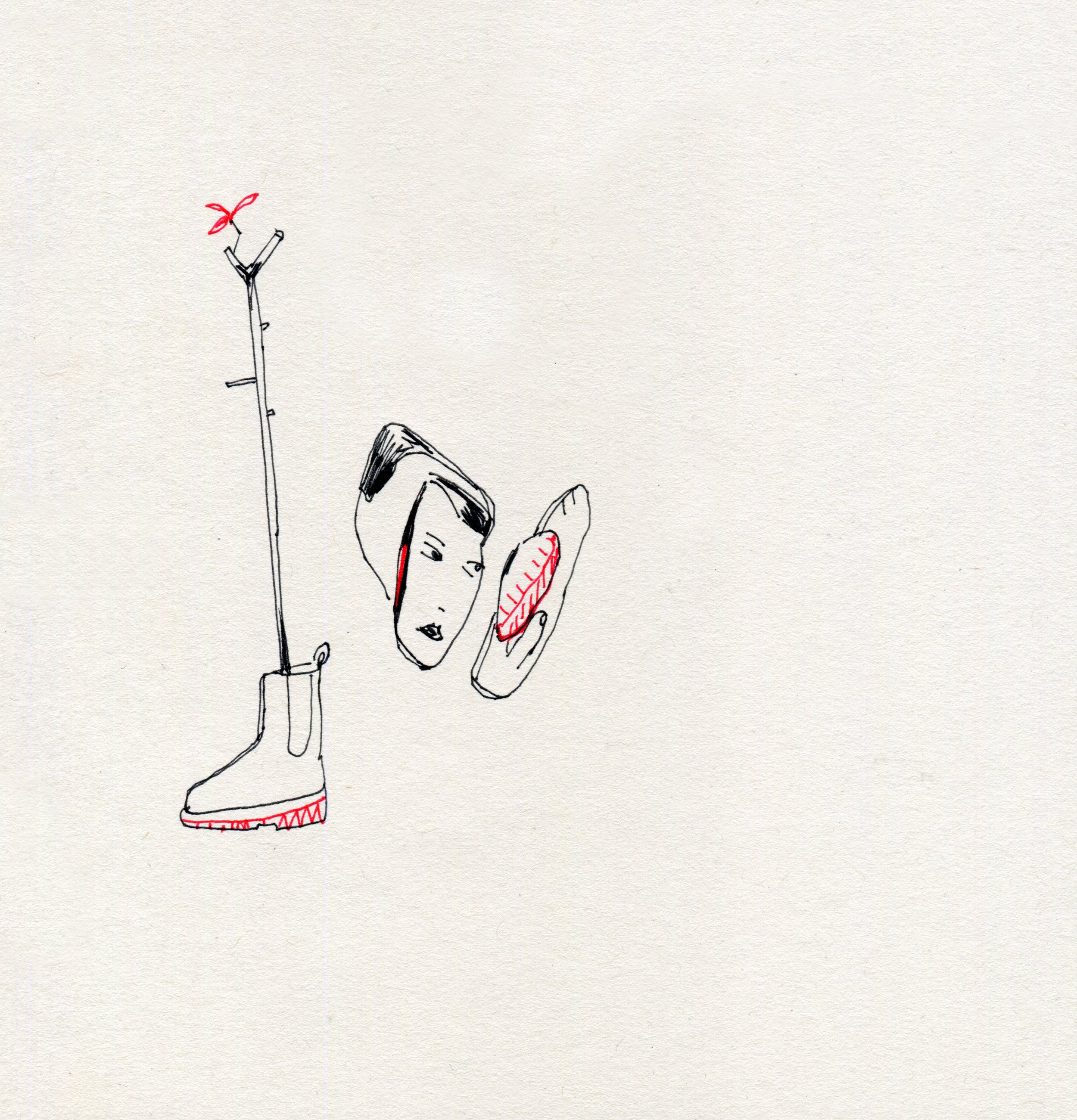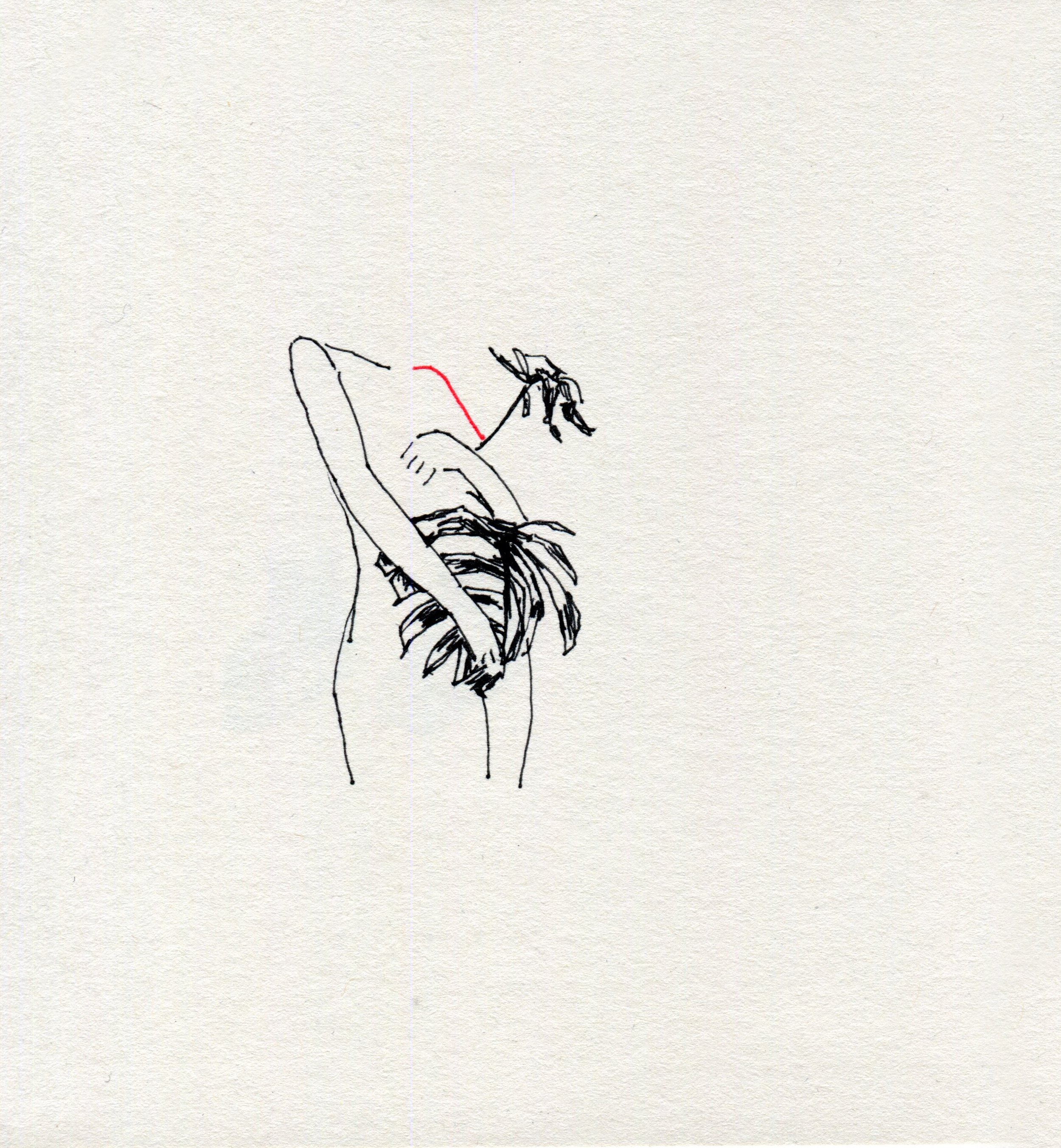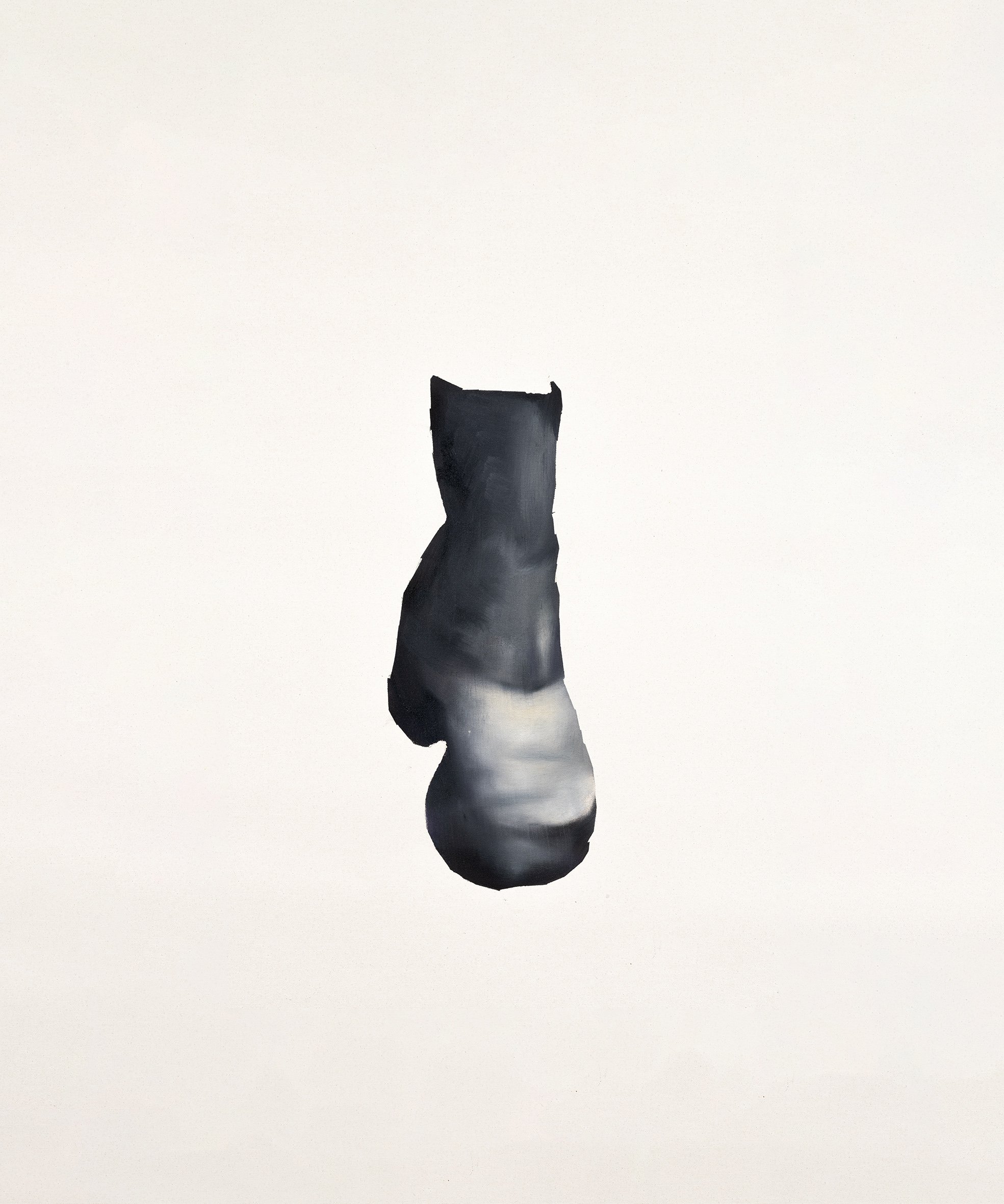It’s Hard to Forget a Name Like That
Merav Shinn Ben-Alon
Curator: Leann Wolf
21 December 2023 - 20 January 2024
It’s Hard to Forget a Name Like That
Solo exhibition: Merav Shinn Ben-Alon
Curator: Leann Wolf
Merav Shinn Ben-Alon’s exhibition, It’s Hard to Forget a Name Like That, was created concurrently with, and in the context of, the writing and publication of her new artist’s book, Venice. The exhibition presents drawings, collages, and oil paintings from three decades of creation, which focus on the body, sexuality, vulnerability, eroticism, and feminism. The exhibition reveals works that appear in the book, some of which have never been shown, alongside new works.
The artist’s book Venice is a cross between art catalogue and graphic novel, which unfolds the story of a young woman, an art student, who experiences sexual assault during her visit to the Venice Biennale. The woman’s story steps out of the book and into the gallery space, dispersing into numerous different moments that resonate with feelings and reminders of trauma. Merav Shinn Ben-Alon dedicates the book “to all the women who said no, and to those who didn’t”. In the shadow of these events, her works also echo the stories of the women and girls who endured the worst things imaginable in the October 7 massacre, and the resounding silence of women’s organizations on this topic.
In her book, Merav Shinn Ben-Alon builds an artistic mechanism that strives to reveal the “truth” and confront representations of power in Western culture: the male, the artist, and the teacher. She spreads across the erased pages of five art books on the lives and oeuvres of the great masters, a wide range of dozens of works created over 30 years of work in a variety of mediums: painting, drawing, collage, and writing. The book’s narrative text, which reads from left to right and is positioned at the bottom of the pages as a sequence connecting its different chapters, begins and ends with the sentence that gave the exhibition its name: “It’s hard to forget a name like that”.
The book was published with support from the Mifal HaPais Council for the Culture and Arts.
About the artist
Merav Shinn Ben-Alon (b. 1965) is an artist and writer who lives and works in Tel Aviv. Shinn Ben-Alon holds a BFA (honors) from the Department of Fine Arts at the Bezalel Academy of Arts and Design, and an MA (honors) from the Interdisciplinary Program in the Arts, Tel Aviv University. She has exhibited in dozens of exhibitions in Israel and abroad and is the recipient of numerous prizes. Her work addresses gender, trauma, and criticism of silenced social narratives. Shinn Ben-Alon’s first book, the graphic novel Five Legs, was published in 2020 and won critical and popular acclaim.
About the curator
Leann Wolf (b. 1993) is a feminist independent curator and curator’s assistant at the Magasin III Jaffa exhibition space. She lives and works in Tel Aviv – Yafo. Wolf holds a BA in Political Science from Tel Aviv University and an MA from the program on Policy and Theory of the Arts from the Bezalel Academy of Arts and Design, Jerusalem.
Bein Hashmashot: Between Night and Day;
End – Edge – Addendum.
It’s Hard to Forget a Name Like That is the third exhibition of the 2023-2014 exhibition season, presented on the subject of the trilogy Bein Hashmashot: Between Night and Day; End – Edge – Addendum. Today’s times are characterized by a sense of urgency which can lead to one-dimensionality, yet also invites a complex, “multi-focal” analysis. One cannot discuss the present without considering the past and building the future.
End: There is a sense that the imminent end is lingering in the air, boundaries have been crossed, the world order has been upended, and doubt has now been cast on assumptions that were once axioms. That which was once taken for granted is no longer certain. What is good and what is bad? How can one distinguish between the two? The word “end” signifies the finishing part, the point where the thing ceases to exist.
Threshold: The threshold is a gate, an opening one must pass through in the struggle to restore meaning, decorum, and standards. In order to recover, one must consent to sojourn in threshold spaces, in destruction and uncertainty. One must agree to touch upon loss, compromise, and change. One must push up against the edges and taste the ashes.
Addendum: Lingering within a sense of destruction, anxiety, and horror enables, in the end, hope to sprout. From wallowing in the depths, the cracked and broken areas, and from disease, separation, loss, and collapsed systems, a seed sprouts, breathing new life into the consciousness and the body and helping to identify the strength embodied within them.















